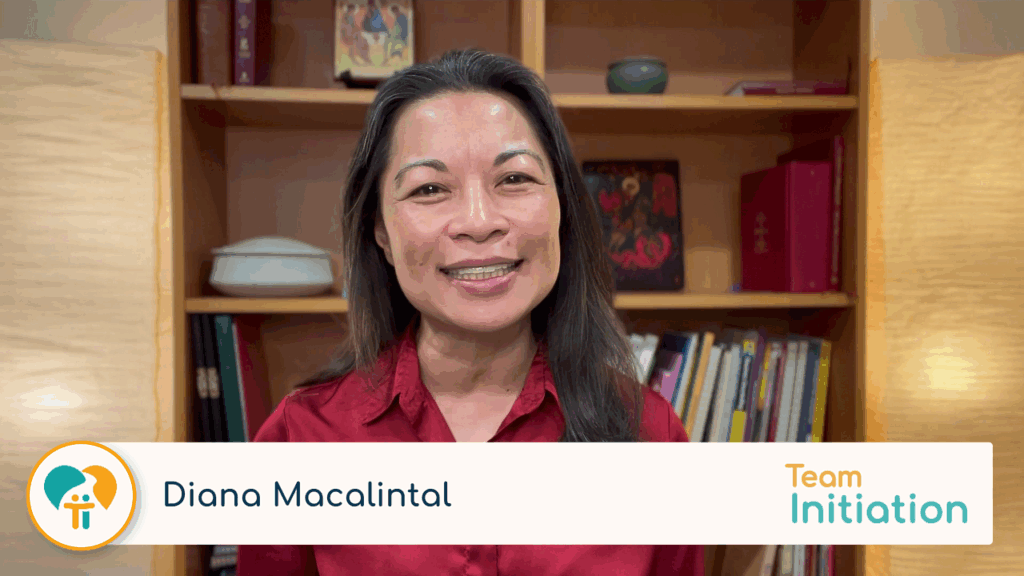I am struggling with how to start this article because synodality can be hard to describe. Honestly, the word itself can be a little confusing and maybe off-putting. If we’re familiar with it at all, we tend to think of a “synod” as something reserved for bishops. And that was true for a short time in our history as a church.
But the concept of synodality is not just for bishops. Nor is it just a buzzword that will disappear with the next pope. Synodality is a way of being church, and it is crucial that your catechumenate teams understand how it will revitalize your ministry and your entire parish community.
So, what exactly is synodality? The final document of the Synod on Synodality describes it as “a path of spiritual renewal and structural reform that enables the church to be more participatory and missionary, so that it can walk with every man and woman, radiating the light of Christ.”
The catechumenate: A synodal journey of accompaniment
It’s about more than just holding meetings; it’s about the very way we are church. Think of it as walking together, listening to one another, and discerning the path forward as a unified body in Christ, guided by the Holy Spirit.
That sounds a lot like catechumenate ministry, doesn’t it? In fact, the final document on the synod says that through the catechumenate process, parishioners — sometimes without being fully aware of it — experience synodality for the first time! (See 24.)
Synodality in action
Why is this synodal approach so important for your ministry with catechumens? The catechumenate itself is fundamentally a journey of accompaniment. You are not simply imparting information; you are walking alongside individuals as they explore faith, encounter Christ, and discern God’s call in their lives. A synodal mindset deeply enhances this process:
- Active Listening: Synodality emphasizes “deep and respectful listening to one another” (Vademecum for the Synod on Synodality). This echoes our primary role as catechists in the initiation process. We begin by listening to the seeker. By truly listening to the stories, questions, doubts, and insights of your seekers, you create a space where they feel heard, valued, and understood. This authentic listening allows you to address their specific needs and foster a deeper encounter with Jesus Christ.
- Inclusivity and Participation: A synodal church is a church of participation and co-responsibility. Just as the broader synodal process invites the involvement of all the faithful, your catechumenate ministry involves seekers as active participants in their faith formation. Encouraging their questions, valuing their perspectives, and immersing them in parish life helps them integrate into the community even before baptism. Once the seekers become catechumens, they are considered members of the household of God and should be included in the synodal process.
- Discernment Together: Synodality is a process of communal discernment, seeking to understand what the Spirit is saying to us as a church, as the People of God. In your ministry, this means helping catechumens discern God’s will in their own lives. The Spirit is speaking to them constantly, but they often do not yet have ears to hear. The more we can model a synodal process both in the catechumenate and in the larger parish, the more attuned the catechumens will become to listening for God’s voice.
- Empowerment through Baptism: Pope Francis believes that baptism and not ordination is the essential qualification for missionary discipleship (see Joy of the Gospel, 120). By embracing synodality in the catechumenate, you are preparing seekers not just for becoming Catholic but for active participation in its life and mission as baptized disciples sent on mission.
The catechumenate itself is fundamentally a journey of accompaniment. You are not simply imparting information; you are walking alongside individuals as they explore faith, encounter Christ, and discern God’s call in their lives.
Benefits for the whole community
Beyond your direct ministry, embracing synodality has profound benefits for the parish as a whole. A synodal parish is:
- More Missionary: The end goal of synodality is to make the church more effective at evangelization by making it more participatory and inclusive (see Final Document, 89). By fostering a culture of listening and collaboration, the parish becomes more attuned to the needs of its members and the wider community, enhancing its ability to share the good news.
- A Community of Communion: Synodality strengthens the bonds of communion within the parish. When parishioners feel heard and valued, they are more likely to engage actively in parish life, fostering a stronger sense of belonging and shared purpose.
- Discerning and Responsive: Through synodal processes, the parish can better discern the signs of the times and respond more effectively to the challenges and opportunities it faces. This includes pastoral planning, addressing the needs of those on the peripheries, and fostering a more vibrant faith community.
- Countering Clericalism: By actively involving the laity, including your catechumenate team, in meaningful dialogue and discernment, the parish moves away from a purely top-down approach and embraces the gifts and charisms of all its members (see Final Document, 74).
Taking on a new mindset
Embracing synodality requires a shift in mindset and a willingness to listen and dialogue, even when encountering differing viewpoints. However, if we can make that shift in mindset, we will see a more vibrant, participatory, and missionary church, and a deeper, lifelong conversion for those journeying towards initiation into Christ.
So when you encounter “synodality,” try to get past the word and understand the vast vision for mission that the concept promises. Your work with seekers is essential to this process. You are already living out the principles of synodality. By intentionally embracing listening, inclusivity, and communal discernment, you are not only accompanying seekers on the journey of faith, but you are also contributing to the ongoing renewal your parish, helping it truly become a community that walks together in faith, radiating the light of Christ to all.


















